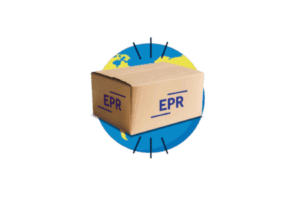Avoiding waste, recycling and reducing CO2: Symrise is implementing numerous measures for sustainable packaging as part of its zero-waste strategy. The company is using paper bags instead of plastic bags and large barrels instead of small canisters, thereby economising on materials and space. Together with customers and suppliers, Symrise supply chain experts are constantly seeking out innovative and sustainable solutions. This also includes the carbon offsetting initiative for cardboard boxes, one of the company’s initiatives on the path toward climate-neutral packaging.
The measures for sustainable packaging form a key part of the sustainability strategy at Symrise. The company has set itself the overarching goal to reduce its share of CO2 along the entire value chain. The Group wants to operate climate-neutral by 2030. For packaging to be as sustainable as possible, Symrise is focusing on avoiding waste and increasing reusability and recycling. This contributed to the Group reducing its CO2 by 52% between 2010 and 2019 per € million of added value.
Sustainable packaging: Paper instead of plastic, barrels instead of canisters
Symrise has committed itself to using fewer plastic containers in production and logistics. The company is increasingly avoiding boxes for its powder products and employing an increasing number of reusable barrels to transport the bags normally contained in the boxes instead. This significantly reduces the use of paper. In addition, Symrise is replacing more plastic containers with metal ones for use in laboratories.
Symrise also uses large barrels instead of multiple small canisters wherever possible. To achieve this, the company works closely with its customers to optimise container size and deliver cost advantages. Such alternatives often require a smaller logistics area for transport. They reduce the need for additional packaging materials, which in turn reduces CO2 emissions. For liquid products, Symrise works with different IBC types. The company cleans them thoroughly after use or replaces only the parts that come into contact with the product. Disposable packaging is sent to recycle for re-use elsewhere in a different form.
“We are constantly looking for possibilities to improve our carbon footprint,” said Björn Kumlehn, Director Technical Purchasing at Symrise. “To achieve this, we rely on the cooperation of our suppliers and customers in many areas. Together with them, we identify innovative and sustainable packaging solutions for the future.”
Pilot project ensures climate-neutral boxes
Symrise is taking the next step with its carbon offsetting initiative for cardboard boxes, which was initiated in Germany in March 2020. The company is calculating its carbon footprint for different packaging materials. The Group supports climate protection projects based on this calculation, and thus offsets the unavoidable CO2 emissions that result from production all the way to transport at Symrise. Symrise marks every box with a QR code. The code links to a website with information on sustainability projects the company supports to offset unavoidable emissions. On the website there is a CO2 clock that permanently shows the already saved CO2 value.
“Through carbon offsetting, we can both make up for unavoidable emissions and also support sustainable projects in the countries we operate,” said Dr Helmut Frieden, VP Corporate Sustainability at Symrise.
“Symrise exclusively chooses projects that demonstrably uphold international quality standards such as the Verified Carbon Standard (VCS), Gold Standard (WWF), REDD+, or FSC. “We support initiatives dedicated to, for example, providing access to clean drinking water or increasing biodiversity. We also want to pursue this path for other packaging materials and employ the findings at our sites around the world.”
The Group is expanding what started with cardboard boxes to other kinds of packaging and materials. They say the goal is to introduce and apply the concept step-by-step at other production sites.








